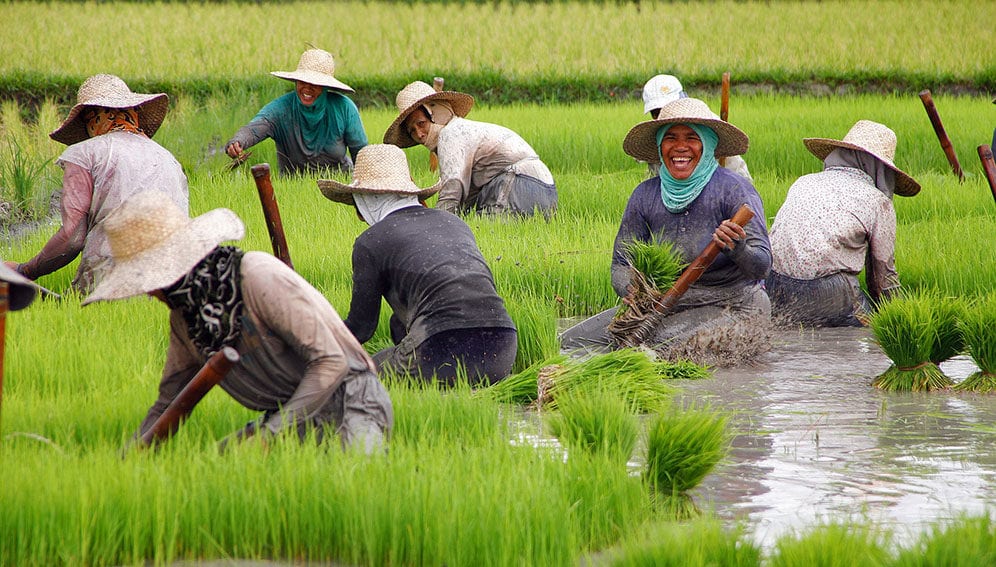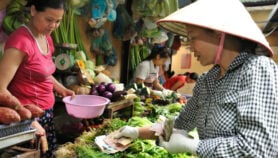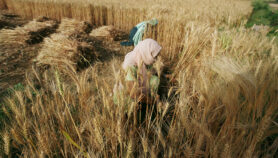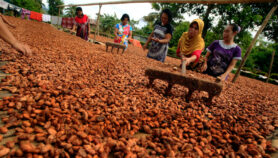09/10/19
‘Climate-smart agriculture must address poverty’

By: Joel Adriano
Send to a friend
The details you provide on this page will not be used to send unsolicited email, and will not be sold to a 3rd party. See privacy policy.
[JAKARTA] Climate-smart agriculture is more than adaptation and mitigation; it is also about increasing the efficiency of resources and adapting new technologies to eradicate food insecurity and poverty among farmers, an international conference heard.
“Growth in agriculture is 2–4 times more effective in lifting people out of poverty than comparable growth in other sectors,” Allaster Cox, deputy head of the Australian mission in Jakarta, told the 5th Climate-Smart Agriculture Conference (8–10 October).
“Productive, efficient agriculture is a strong foundation for economic development”
Allaster Cox, deputy head of the Australian mission in Jakarta
“Productive, efficient agriculture is a strong foundation for economic development. It provides employment and income and reduces poverty,” Cox said, noting that the sector faces an unpredictable future due to climate change. “There is no historical analogue for climate change…that allows accurate prediction for which we can fit a future farming system,” Cox said.
Leslie Lippen, natural resource economist and visiting fellow at Cornell University, said agriculture is often seen in terms of food supply or food security, setting aside the well-being of those who grow the crops. “It’s the livelihood of people, and a lot of them are still living in extreme poverty.”
Sonja Vermeulen, director of programmes at the CGIAR System Organization, emphasised the importance of changing people’s diets and consumption as part of adaptation.
“Change is what we have to do; change in what we eat, helping kids develop healthy eating habits…to have healthy people and a healthy planet,” Vermeulen stressed. “And we need to do it in one generation.”
She said that actions must be sustained and be system-wide. Governments must step up and be brave enough to apply healthy food practices in public procurement. Policies such as the new sugar tax in Thailand and the Philippines have encouraged multinationals to reduce the amount of sugar they use in producing food and drinks while the reverse happened in Indonesia, she noted.
“The politics are really tough as obviously there will be winners and losers,” Vermeulen said. “But it will create new opportunities and spur innovations.”
Andrew Campbell, chief of the Australian Centre for International Agricultural Research, warns against the push to change diets and preferences.“Transforming food systems takes you to the public space, and we are not experts on public health,” Campbell tells SciDev.Net. “When you start debates on nutrition, it takes you to the contested space of companies and individuals with powerful influence, and you must be ready to deal with them.”
Noting that bankers and insurers, who make decisions on capital, were conspicuously missing at the conference, Campbell comments: “Some scientists might not be comfortable having them as they see the private sector being motivated more by profit. But, like other stakeholders, they face risks and are wondering what the solution is.”
Pointing to the large number of innovations, Campbell says the challenge is how to get them scaled-up to benefit more people. “This is where capital comes in—we need to create the right environment for the private sector to participate.”
This piece was produced by SciDev.Net’s Asia & Pacific desk.













